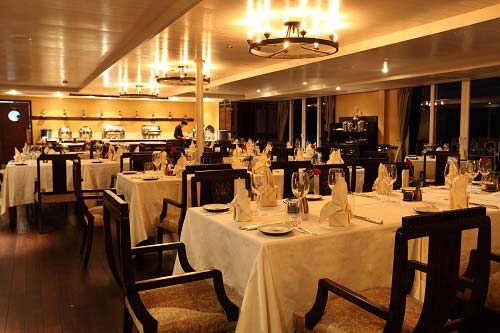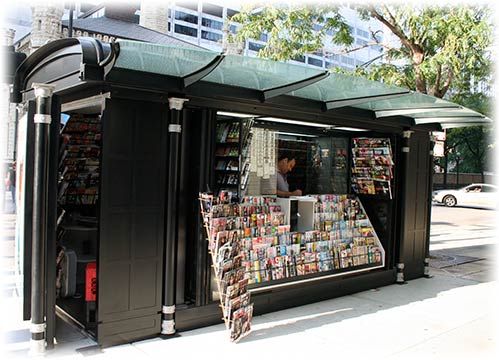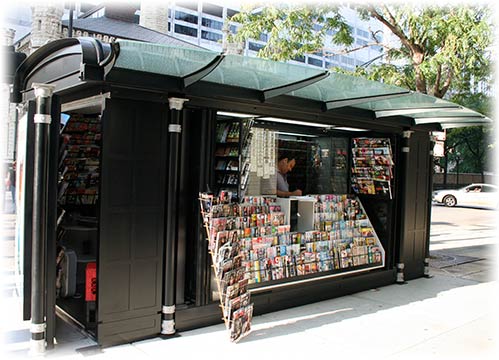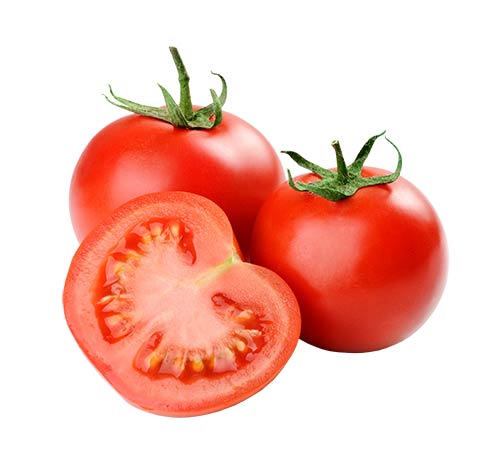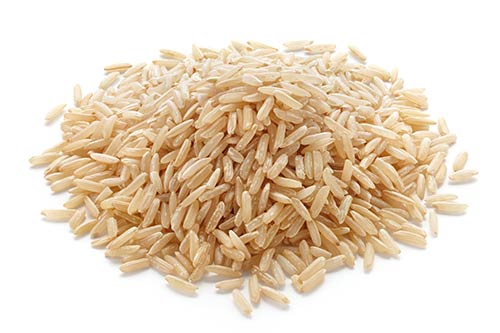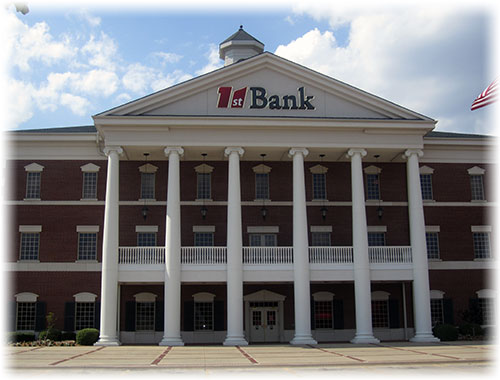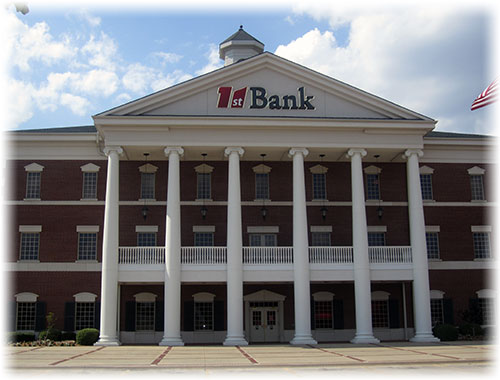party
a social event when a lot of people meet together to enjoy themselves by eating, drinking, dancing etc

مهمانی، جشن، پارتی
I met John at a party two months ago.
من جان را دو ماه پیش در یک پارتی ملاقات کردم.
a social event when a lot of people meet together to enjoy themselves by eating, drinking, dancing etc

مهمانی، جشن، پارتی
I met John at a party two months ago.
من جان را دو ماه پیش در یک پارتی ملاقات کردم.
Oxford Essential Dictionary
party noun (plural parties)
1a time when friends meet, usually in somebody's home, to eat, drink and enjoy themselves:
2(politics) a group of people who have the same ideas about politics:
The main political parties in Britain are the Labour Party, the Conservative Party (also called the Tory Party) and the Liberal Democrats. In the US the main parties are the Republicans and the Democratics.
3a group of people who are travelling or working together:
Oxford Essential Dictionary for learners of English© Oxford University Press, 2006.
Longman Dictionary of Contemporary English
party
I. par‧ty1 S1 W1 /ˈpɑːti $ ˈpɑːrti/ BrE AmE noun (plural parties) [countable]
[Date: 1200-1300; Language: Old French; Origin: partie 'part, party', from partir 'to divide']
1. FOR FUN a social event when a lot of people meet together to enjoy themselves by eating, drinking, dancing etc:
We’re having a small party this evening to celebrate our wedding anniversary.
throw/give a party
The university threw a party to welcome them.
go/come to a party
Are you going to the party tonight?
at a party
I met John at a party a couple of months ago.
the party spirit (=the way someone feels when they are really enjoying a party) ⇨ hen party, house party, stag party, party animal
2. IN POLITICS [also + plural verb British English] a political organization with particular beliefs and aims, which you can vote for in elections:
I have always voted for the Labour Party.
He failed to win the party’s nomination for President.
The conference is open to all party members. ⇨ party line
3. GROUP OF PEOPLE [also + plural verb British English] a group of people who go somewhere together or do a job together
party of
a party of tourists
There were several students in our party.
A search party was sent out to look for the missing climbers.
a rescue party
Admission is free for school parties. ⇨ working party
4. IN AN ARGUMENT/LAW law or formal one of the people or groups who are involved in a legal argument or agreement:
helping the two parties to reach an agreement
guilty/innocent party
He sees himself as the innocent party in this dispute. ⇨ third party1
5. be (a) party to something formal to be involved in an activity or decision:
I was not a party to this discussion.
• • •
COLLOCATIONS (for Meaning 1)
■ verbs
▪ have a party We’re having a party on Saturday night.
▪ hold a party The party was held at his flat.
▪ throw/give a party (=organize it) Staff threw a party to celebrate the news.
▪ host a party (=give a large or formal party) The party was hosted by the Danish ambassador.
▪ go to/come to a party (also attend a party formal) Are you going to Tom’s party? | About 500 people will attend a party in her honour.
▪ invite somebody to a party I’ve been invited to Greg’s party next weekend.
▪ gatecrash a party (=go to it even though you have not been invited) Some older boys tried to gatecrash the party.
▪ a party is in full swing (=people at a party are having a good time talking, dancing etc) At 3 am, the party was still in full swing.
▪ there is a party going on Somewhere near the hotel there was a party going on.
▪ a party breaks up (=it ends and people go home) The party broke up a little after midnight.
■ ADJECTIVES/NOUN + party
▪ a birthday party They met at her sister’s 18th birthday party.
▪ a Christmas/Halloween etc party I hope you’re going to the office Christmas party.
▪ a big/small party I don’t really like going to big parties.
▪ a dinner party (=one where people are invited to someone’s house for an evening meal) It’s a favorite topic of conversation at fashionable dinner parties these days.
▪ a cocktail party (=a fairly formal party, at which alcoholic drinks are served) I first met him at a cocktail party at the American embassy.
▪ a fancy dress party British English, a costume party American English (=one where people wear unusual clothes, for example so they look like someone from a story) She went to the fancy dress party as Snow White.
▪ an office party I danced with my boss at the office party.
▪ a surprise party Amy has planned a surprise party for his birthday.
▪ a farewell/leaving party You didn’t come to Ken’s farewell party, did you?
▪ a street party (=one held outside in a street) Thousands flocked to the street party on Princess Street to celebrate New Year.
▪ a lavish party (=one where a lot of money has been spent) He threw lavish parties for his celebrity friends.
■ party + NOUN
▪ the party spirit (=the way people feel when they are really enjoying a party) There’ll be plenty of free champagne to get the party spirit going.
▪ be in a party mood (=want to enjoy yourself at a party) Kate wasn’t really in a party mood, so she stayed home.
▪ party games The children had great fun playing party games.
▪ a party dress The little girls were wearing white party dresses.
■ COMMON ERRORS
► Do not say 'make a party' or 'do a party'. Say have a party.
• • •
COLLOCATIONS (for Meaning 2)
■ ADJECTIVES/NOUN + party
▪ a political party The Labour Party and the Conservative Party are the two main political parties in Britain.
▪ the Labour/Democratic etc Party The leadership race within the Republican Party is almost over.
▪ an opposition party (=a party that is not in power) The tax increase was criticized by opposition parties.
▪ the ruling party (=the party in power) The ruling party’s level of support grew throughout the year.
▪ a right-wing/left-wing party Support for the right-wing parties was strongest among young working-class men.
■ party + NOUN
▪ a party member He’s been a Conservative party member for 20 years.
▪ the party leader He met with opposition party leaders.
▪ a party candidate (=someone who represents a political party in an election) The seat was won by the Socialist Party candidate with 68% of the vote.
▪ the party faithful (=strong supporters of a party) His policies appeal to the party faithful.
▪ a party activist (=someone who works hard for a party) Campaign literature is distributed by unpaid party activists.
▪ party policy (=a political party’s official plan or position on important subjects) There has been a change in party policy.
▪ a party conference He will give a speech at the Tory party conference this morning.
▪ the party chairman British English He resigned as Conservative party chairman.
▪ a party official The incident has angered senior party officials.
■ verbs
▪ a party wins/loses an election Do you think the Labour Party can win the next election?
▪ join a party Bloomfield joined the Communist Party in 1946.
▪ form/found a party The two politicians broke away from the PDF to form a new political party.
■ phrases
▪ a party is in power From 1945 until 1951 the Labour Party was in power in Britain.
▪ a party comes to power (=begins to be the government) The ruling party came to power in May 2001.
• • •
THESAURUS
▪ party a social event when a lot of people meet together to enjoy themselves by eating, drinking, dancing etc: We’re having a party for Sarah’s 40th birthday. | I met my boyfriend at a party.
▪ get-together an informal party: Christmas is the perfect time for a family get-together.
▪ ball a large formal party where people dance: the end of term ball
▪ rave a large party which is held outside or in an empty building, where people dance to music and take illegal drugs
▪ reception a large formal party, especially one after a wedding or to welcome an important person: The wedding reception is at a nearby hotel. | a reception for the Thai Foreign Minister | They attended a White House reception to mark the Queen’s visit.
▪ function a large formal or official party: He has been asked to play at many corporate functions (=an official party held by a company).
▪ celebration a party or special event that is organized in order to celebrate something: the country’s 50th anniversary celebrations | It was a 21st birthday celebration which Mary would never forget.
▪ bash informal a party, especially a big one that a lot of famous people go to – used especially in journalism: the star’s birthday bash | a picture of him at a Hollywood bash | a showbiz bash
▪ do British English informal a party: We’re having a do to celebrate Margaret’s birthday.
▪ dinner party a party where people are invited to someone’s house for an evening meal: I met him at a dinner party.
▪ house-warming (party) a party that you have when you move into a new house: We’re having a house-warming next week.
▪ cocktail party (also drinks party British English) a party that people go to in order to talk and have a drink together for a few hours
▪ fancy-dress party British English, costume party American English a party where people dress in special clothes, for example to look like a famous person or a character in a story
▪ hen party especially British English a social event just before a wedding, for a woman who is getting married and her female friends
▪ stag night British English, bachelor party American English a social event just before a wedding, for a man who is getting married and his male friends
▪ baby/wedding shower American English an event at which people give presents to a woman who is going to have a baby or get married
II. party2 BrE AmE verb (past tense and past participle partied, present participle partying, third person singular parties) [intransitive]
informal to enjoy yourself with a group of other people by drinking alcohol, eating, dancing etc:
Let’s party!
Oxford Advanced Learner's Dictionary
party
party [party parties partied partying] noun, verb [ˈpɑːti] [ˈpɑːrti]
noun (pl. parties)
1. (also Party) countable + singular or plural verb a political organization that you can vote for in elections and whose members have the same aims and ideas
• the Democratic and Republican Parties in the United States
• She belongs to the Labour Party.
• the ruling/opposition party
• the party leader/manifesto/policy
2. countable (especially in compounds) a social occasion, often in a person's home, at which people eat, drink, talk, dance and enjoy themselves
• a birthday/dinner/garden, etc. party
• to give/have/throw a party
• Did you go to the party?
• party games
3. countable + singular or plural verb a group of people who are doing sth together such as travelling or visiting somewhere
• The school is taking a party of 40 children to France.
• The theatre gives a 10% discount to parties of more than ten.
4. countable (formal) one of the people or groups of people involved in a legal agreement or argument
• the guilty/innocent party
• The contract can be terminated by either party with three months' notice.
• The judge's decision satisfied most of the parties concerned.
Word Origin:
Middle English (denoting a body of people united in opposition to others, also in sense 1): from Old French partie, based on Latin partiri ‘divide into parts’. Sense 2 dates from the early 18th cent.
Thesaurus:
party noun
1. C+sing./pl. v.
• the Democratic Party
faction • • camp • • lobby •
rival/opposing parties/factions/camps
the socialist party/camp
belong to a party/faction/camp
2. C
• They threw a huge party to celebrate the end of term.
celebration • • reception • • dance • • ball • • rave • |BrE disco • |AmE shower • |informal, especially journalism bash •
at a party/celebration/reception/dance/ball/rave/disco/shower/bash
have/hold/go to/attend a party/celebration/reception/dance/ball/rave/disco/shower/bash
3. C+sing./pl. v.
• a coach party of tourists
group • • band • • contingent • • team • • crew • • squad • • gang • • detachment • |formal company • |often disapproving pack •
a party/group/band/contingent/team/crew/squad/gang/detachment/pack of sth
in (a) party/group/band/team/crew/squad/gang/company/pack
join a party/band/team/crew/gang
Collocations:
Politics
Power
create/form/be the leader of a political party
gain/take/win/lose/regain control of Congress
start/spark/lead/be on the brink of a revolution
be engaged/locked in an internal power struggle
lead/form a rival/breakaway faction
seize/take control of the government/power
bring down/overthrow/topple the government/president/regime
abolish/overthrow/restore the monarchy
establish/install a military dictatorship/a stable government
be forced/removed/driven from office/power
resign/step down as party leader/an MP/president/prime minister
enter/retire from/return to political life
Political debate
spark/provoke a heated/hot/intense/lively debate
engage in/participate in/contribute to (the) political/public debate (on/over sth)
get involved in/feel excluded from the political process
launch/start/lead/spearhead a campaign/movement
join/be linked with the peace/anti-war/feminist/civil rights movement
criticize/speak out against/challenge/support the government
lobby/put pressure on the government (to do sth)
come under fire/pressure from opposition parties
Policy
call for/demand/propose/push for/advocate democratic/political/land reform(s)
formulate/implement domestic economic policy
change/influence/shape/have an impact on government/economic/public policy
be consistent with/be in line with/go against/be opposed to government policy
reform/restructure/modernize the tax system
privatize/improve/deliver/make cuts in public services
invest (heavily) in/spend sth on schools/education/public services/(the) infrastructure
nationalize the banks/the oil industry
promise/propose/deliver/give ($80 billion in/significant/substantial/massive) tax cuts
a/the budget is approved/ (especially NAmE) passed by parliament/congress
Making laws
have a majority in/have seats in Parliament/Congress/the Senate
propose/sponsor a bill/legislation/a resolution
introduce/bring in/draw up/draft/adopt/pass a bill/a law/legislation/measures
amend/repeal an act/a law/legislation
veto/vote against/oppose a bill/legislation/a measure/a proposal/a resolution
get/require/be decided by a majority vote
more collocations at economy, voting
Example Bank:
• By now the party was in full swing.
• First we must notify all the interested parties.
• From 1991 new political parties emerged to challenge the governing party.
• Gordon Brown's speech at the Labour party conference
• He loves throwing lavish parties.
• He was accused of having strong links with the Communist Party.
• I was at a party in London that night.
• I'm organizing a surprise party for my sister.
• It was time for us to join the coach party.
• Most MPs will follow the party line.
• Mr Cameron was cheered by the party faithful.
• On moving in they threw a huge house-warming party.
• She arrived with a party of helpers.
• She became the leader of the party in 2008.
• She is a hard-drinking, non-stop party girl.
• She left the party in 2000.
• She refused to follow the party line= the official view of the party.
• She turned up at her fiancé's bachelor party.
• The Labour Party was returned to power in 2001.
• The Labour party lost the vote on this important issue.
• The Liberal party controlled the Senate at this time.
• The captain told the crew to prepare to receive a boarding party.
• The girls were having a slumber party.
• The party broke up around midnight.
• The party was officially dissolved in 1927.
• The wedding party climbed into the carriages.
• There was a party going on next door.
• They are now the majority party in Parliament.
• They attended the launch party for the new film.
• This agreement binds both parties.
• This agreement is binding on both parties.
• This agreement shall be binding upon both parties.
• We had a farewell party for Michelle when she left the company.
• You must sign the document in the presence of an independent third party
• a bitter dispute which finally split the party
• a surprise birthday party
• both main political parties
• members of the parliamentary party
• policies that would be out of place in the Republican party platform
• the majority party in both Houses
• the parties contesting the elections
• A rescue party immediately set off by boat.
• Did you go to their party?
• He gave a dinner party for some old friends.
• It was decided to send out a search party to look for the missing climbers.
• Several members of the England cricket touring party were robbed outside the team hotel.
• The theatre gives a 10% discount to parties of more than 10.
• There were fizzy drinks, cake and party games.
• They threw a party to celebrate the end of term.
• We're going to have a housewarming party next weekend.
• a coach party of German tourists
• the party leader/manifesto/policy
• the ruling/opposition party
Idioms: bring something to the party ▪ party to something
Word Origin:
Middle English (denoting a body of people united in opposition to others, also in sense 1): from Old French partie, based on Latin partiri ‘divide into parts’. Sense 2 dates from the early 18th cent.
Example Bank:
• That guy Jake— he really knows how to party!
Cambridge Advanced Learner's Dictionary
Cambridge Advanced Learner's Dictionary - 4th Edition
party / ˈpɑː.ti / / ˈpɑːr.t̬i / noun [ C ] (CELEBRATION)
A1 a social event where a group of people meet to talk, eat, drink, dance, etc., often in order to celebrate a special occasion:
a birthday party
a farewell party
a dinner party (= a small, sometimes formal party where a meal is eaten)
a fancy-dress ( US costume ) party (= a party where people wear clothes that make them look like someone or something else)
Peter has/gives/throws really wild parties.
Word partners for party noun (CELEBRATION)
have / give / go to / throw a party • a birthday / Christmas / family / office party • a big / private / wild party • at a party
Word partners for party noun (POLITICAL)
join / form / found / represent a party • a political / left-wing / right-wing party • the governing / opposition / ruling party • a party activist / leader / member
party / ˈpɑː.ti / / ˈpɑːr.t̬i / noun [ C , + sing/pl verb ] (POLITICAL GROUP)
B1 an organization of people with particular political beliefs that competes in elections to try to win positions in local or national government:
the Democratic Party
the Green party
the Conservative party
The party has/have just elected a new leader.
He was elected as party leader in 2001.
They contacted party members from across the nation to ask for their support.
Word partners for party noun (CELEBRATION)
have / give / go to / throw a party • a birthday / Christmas / family / office party • a big / private / wild party • at a party
Word partners for party noun (POLITICAL)
join / form / found / represent a party • a political / left-wing / right-wing party • the governing / opposition / ruling party • a party activist / leader / member
party / ˈpɑː.ti / / ˈpɑːr.t̬i / noun [ C , + sing/pl verb ] (VISITING GROUP)
a group of people who are involved in an activity together, especially a visit:
a party of tourists
Most museums give a discount to school parties.
Word partners for party noun (CELEBRATION)
have / give / go to / throw a party • a birthday / Christmas / family / office party • a big / private / wild party • at a party
Word partners for party noun (POLITICAL)
join / form / found / represent a party • a political / left-wing / right-wing party • the governing / opposition / ruling party • a party activist / leader / member
party / ˈpɑː.ti / / ˈpɑːr.t̬i / noun [ C ] (INVOLVEMENT)
one of the people or groups of people involved in an official argument, arrangement, or similar situation:
The UN called on all parties in the conflict to take a positive stance towards the new peace initiative.
It's often difficult to establish who the guilty party is following a road accident.
Word partners for party noun (CELEBRATION)
have / give / go to / throw a party • a birthday / Christmas / family / office party • a big / private / wild party • at a party
Word partners for party noun (POLITICAL)
join / form / found / represent a party • a political / left-wing / right-wing party • the governing / opposition / ruling party • a party activist / leader / member
© Cambridge University Press 2013
Collins COBUILD Advanced Learner’s English Dictionary
party
[pɑ͟ː(r)ti]
♦
parties, partying, partied
1) N-COUNT A party is a political organization whose members have similar aims and beliefs. Usually the organization tries to get its members elected to the government of a country.
...a member of the Labour party.
...India's ruling party.
...opposition parties.
...her resignation as party leader.
2) N-COUNT A party is a social event, often in someone's home, at which people enjoy themselves doing things such as eating, drinking, dancing, talking, or playing games.
The couple met at a party...
We threw a huge birthday party...
Most teenagers like to go to parties.
4) N-COUNT: usu with supp A party of people is a group of people who are doing something together, for example travelling together.
They became separated from their party.
...a party of sightseers.
...a research party of scientists.
5) N-COUNT: usu supp N One of the people involved in a legal agreement or dispute can be referred to as a particular party. [LEGAL]
It has to be proved that they are the guilty party.
...he was the injured party.
...a court, the decision of which may not satisfy either party.
6) PHRASE: V inflects, PHR n Someone who is a party to or is party to an action or agreement is involved in it, and therefore partly responsible for it.
Crook had resigned his post rather than be party to such treachery.
Merriam-Webster's Advanced Learner's Dictionary
1par·ty /ˈpɑɚti/ noun, pl -ties [count]
1 : a social event in which entertainment, food, and drinks are provided
• We are having/giving/throwing a party.
• a high school dance party
• Were you invited to her party?
• Our New Year's Eve party was a huge success.
• a dinner party
• a birthday/costume/farewell party
- often used before another noun
• a party hat/dress
• party decorations/games
• Get in the party spirit.
• I'm not in a party mood.
- see also block party, cocktail party, drinks party, hen party, house party, slumber party, stag party, tailgate party, tea party
2 : an organization of people who have similar political beliefs and ideas and who work to have their members elected to positions in the government
• political parties with opposing agendas
• the Democratic/Republican Party
• The senator is loyal to his party.
• the ruling party [=the party that is in power]
• party members/policy
• the party leader
3 law : a person who is involved in a legal case or contract
• the two parties in the marriage contract
• the guilty party
• The parties in the lawsuit reached a settlement.
- see also third party
4 formal : someone or something that is involved in an activity
• The principal of the school was urged to be a party [=participant] in the educational council.
• Interested parties are asked to contact their local representative.
- often + to
• a party to the international coalition aimed at fighting hunger
• He refused to be a party to [=he refused to take part in] the gambling ring.
5 : a group of people who do something together
• a mountain-climbing party
• a rescue/search party
- often + of
• a party of travelers from Great Britain
• He made a reservation at the restaurant for a party of four. [=for a group of four people]
• A party of teenagers is in charge of the neighborhood cleanup.
the life (and soul) of the party



